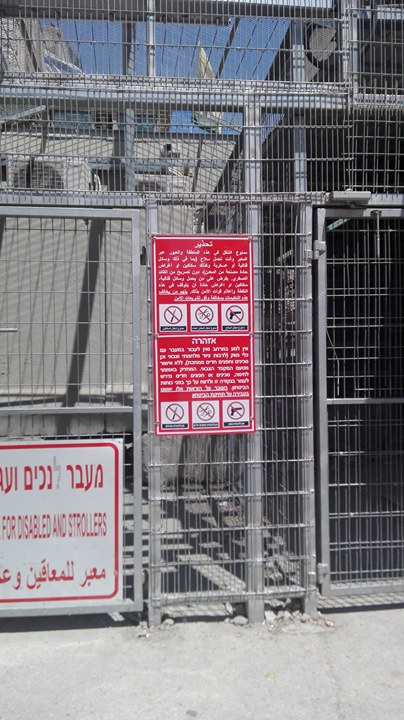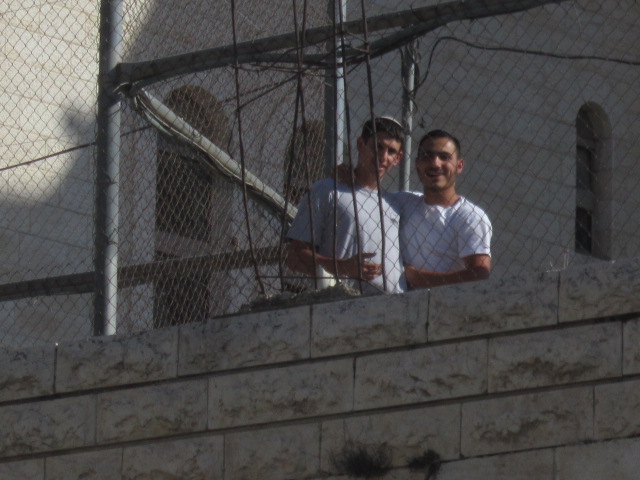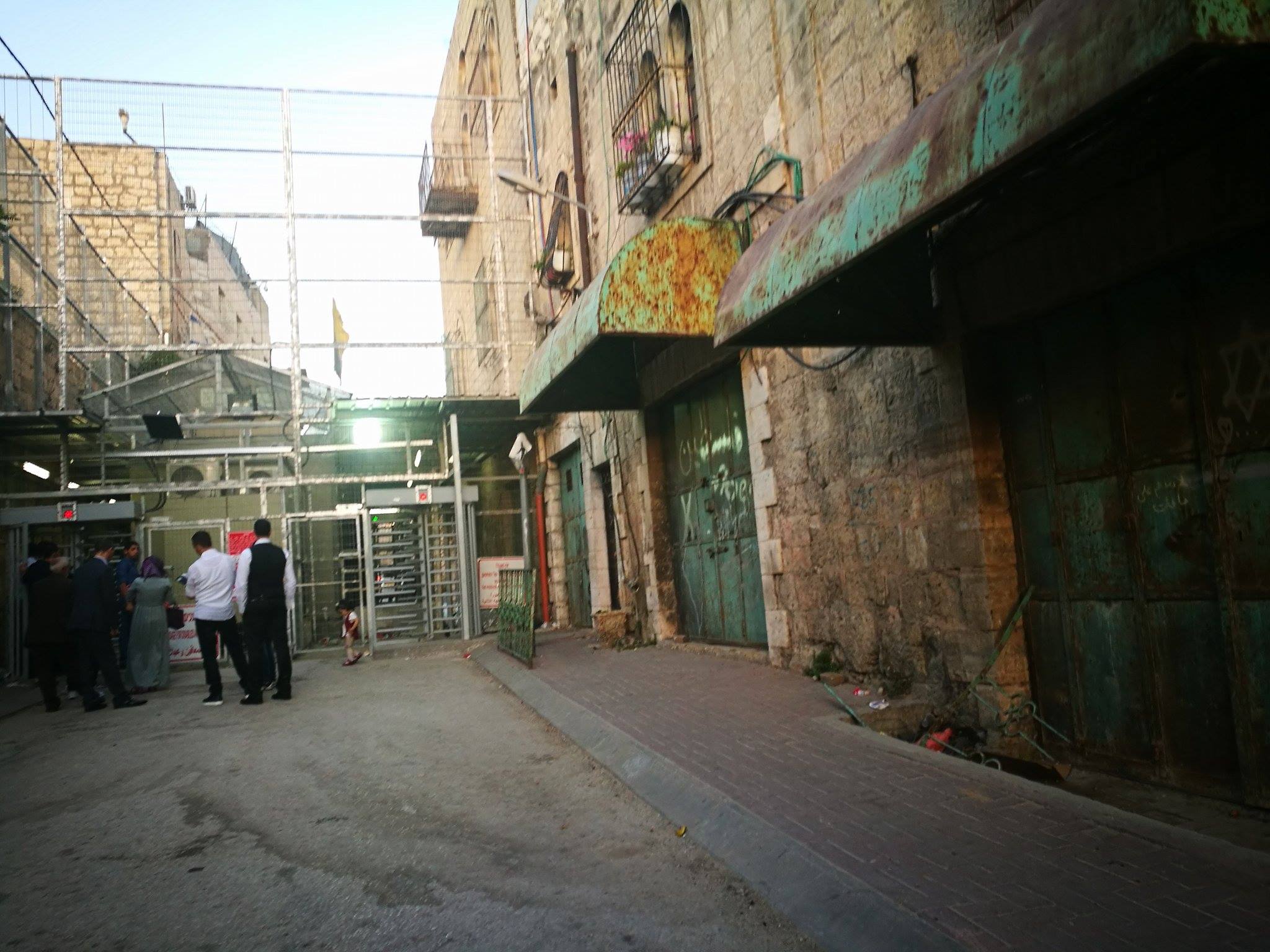Tag: International law
-
Life imprisoned in a ‘closed military zone’: “Daily Life”?
26th June 2017 | International Solidarity Movement, al-Khalil team | Hebron, occupied Palestine Israeli forces at Shuhada checkpoint in occupied al-Khalil (Hebron) have put up yet another sign ‘instructing’ the Palestinian residents on their behavior at the checkpoint. The bright-red sign clearly with pictures prohibits any kind of supposedly ‘dangerous’ materials like guns, knives and…
-
Israeli forces shoot at and arrest 14-year old boy in Hebron
26th June 2017 | International Solidarity Movement, al-Khalil team | Hebron, occupied Palestine A fourteen year old Palestinian boy was shot at by settlers and soldiers before being arrested on the 25th June at 4:00 pm outside Bab al-Baladiya, the military base overlooking the old city in occupied al-Khalil (Hebron). Sources are unclear as to…
-
Palestinians celebrating Eid in a ‘closed military zone’
26th June 2017 | International Solidarity Movement, al-Khalil team | Hebron, occupied Palestine As anywhere all over the world, Palestinian Muslims are celebrating the end of the fasting-month Ramadan with the 3-day feast of Eid. Eid usually is a joyous occasion, everyone dresses up nicely and the most important activity is visiting family. For Palestinians…



